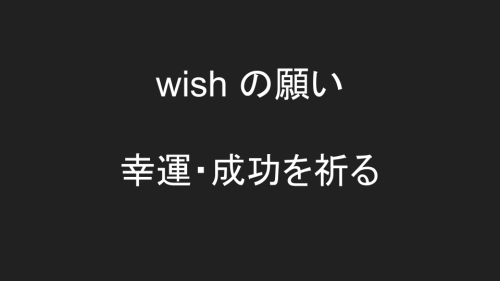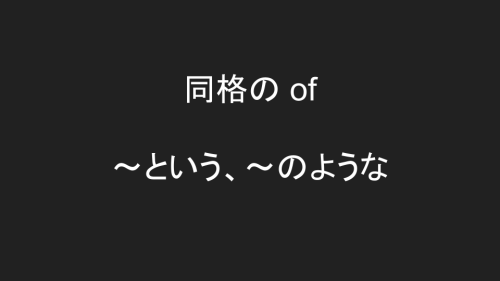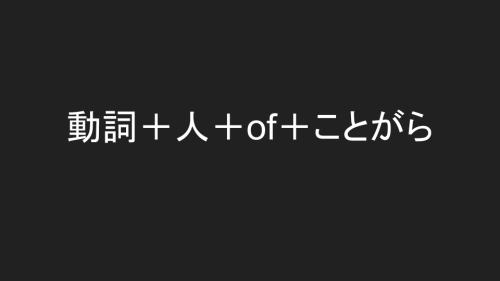頻出する「most+名詞」と「most of+名詞」
「most+名詞」と「most of+名詞」は英文に頻出します。
たとえば、こんな感じです。
The city is about to enact the first congestion pricing plan in the U.S., which would charge most drivers $15 to enter much of Manhattan below 60th Street.
同市(ニューヨーク)は米国初の渋滞料金制度を制定しようとしており、マンハッタンの60丁目より下では、大半のドライバーに15ドルを課すことになる。
(ニューヨーク・タイムズ「モーニング・ブリーフィング」2024年5月15日付から抜粋)
The war in Sudan, which has been raging over a year, has killed many thousands of people and displaced millions more. Despite that, the brutal civil conflict has remained nearly unknown to most of the world.
スーダンの内戦は1年以上続いており、数千人が死亡し、さらに数百万人が避難民となっている。それにもかかわらず、この残忍な内戦は世界の大半にはほとんど知られていない。
(ニューヨーク・タイムズ「モーニング・ブリーフィング」2024年8月9日付から抜粋)
でも、両者については、なんとなくあいまいなままにやり過ごしていませんか?
そこで、以下、これらについて基本事項を確認し、例文を紹介します。
「most+名詞」
「most+名詞」では、可算名詞の複数形と不可算名詞が修飾されます。
通例無冠詞で、漠然と「大半の~」「大多数の~」「たいていの~」といった意味を表します。
ここでの most は形容詞ですね。
では、例文です。
「most+名詞」の例文(音声付き)
1. Most Americans dislike raw fish.
たいていのアメリカ人は生魚が嫌いだ。(ラ)
2. Most exercise is beneficial.
たいがいの運動は有益である。(ラ)
3. He’s allergic to most modern music.
彼は現代音楽が性に合わない。(ラ)
4. Most faces are asymmetric.
たいていの顔は左右対称ではない。(ラ)
5. Most stocks went down.
大半の株価が下落した。(ラ)
6. Heat expands most metals.
熱はほとんどの金属を膨張させる。(ラ)
7. Most children read an expurgated version of Grimms’ fairy tales.
ほとんどの子供はグリム童話の削除版を読んでいる。(ラ)
8. Most things have two handles.
(ことわざ)たいていの物には二面がある。(ラ)
9. Trade in most shops tends to lag in January.
たいていの商店では1月に商いが湿りがちとなる。(ラ)
10. Most everyone around here is related to everyone else.
この辺りの人はほとんど全員縁続きだ。(ラ)
11. The species with five pairs of gills account for most sharks.
サメのほとんどの種は5対の鰓(えら)を持っている。(ラ)
12. Most dogs have a quick ear.
たいてい犬は聴覚が鋭い。(ラ)
13. Most children love ice cream.
子どもはたいていアイスクリームが大好きだ。(リ)
14. Most people supposed him innocent.
たいていの人が彼は無罪だと思っていた。(リ)
15. Most religions predicate life after death.
たいていの宗教は来世を真実として説く。(リ)
16. She has been to most European countries.
彼女はたいていのヨーロッパの国へ行ったことがある。(オ)
17. Most people think so.
たいていの人はそう考える。(オ)
18. I don’t like most modern furniture.
たいていの現代家具は好きではない。(オ)
19. I think most people hate snakes.
たいていの人はヘビが嫌いだと思う。most of the peopleとすると「特定グループの大部分の人々」(ウ)
20. Most cheese is made from cow’s milk.
大部分のチーズは牛乳から作られる。(ウ)
21. Most scientists are agreed that CO2 affects global warming.
多くの科学者は二酸化炭素が地球温暖化に影響しているとの意見で一致している。(ウ)
22. Most people do it not because they have to, but because they like to.
ほとんどの人は、そうしなければならないからではなく、そうしたいからするのだ。(ウ)
23. Most shopping centers have little character.
たいていのショッピングセンターは個性がほとんどない。(ウ)
24. Most respondents disagreed that money buys happiness.
ほとんどの回答者はお金で幸せが買えるということに反対した。(ウ)
25. I like most classical music.
私はたいていのクラシック音楽が好きだ。(ウ)
26. I’m afraid of most dogs, but not this one.
私はたいていの犬はこわいのですが、この犬は別です。(ジ)
27. These days, most information comes from the Internet.
最近では大部分の情報はネットから得られる。(ジ)
28. These days most crime is against property, not people.
昨今の犯罪は人に対するものではなく、たいてい財産に対するものである。(ジ)
29. Most people saw her sensitivity as a sign of weakness.
ほとんどの人は彼女の感受性の強さを弱さの表れと見なした。(ジ)
30. Most success is gained through constant effort.
大部分の成功は不断の努力によって得られる。(ジ)
31. As is the way with most children, my son loves to play video games.
大抵の子供たちがそうであるように、私の息子はゲームが大好きだ。(ジ)※ asは主節の内容を受ける関係代名詞
32. Most birds breed in the spring.
鳥はたいてい春にひなをかえす(繁殖する)。(新英和)
33. Most people are yearning for the abolition of nuclear weapons.
大半の人が核兵器廃絶を切望している。(ジ)
34. Most magazines are published monthly.
たいていの雑誌は月刊だ。(新英和)
35. While most children learn quickly, some need extra help.
たいていの子供はのみこみが早いが、特別な支援が必要な子供もいる。(ジ)
36. Today, access to most websites is open to anyone.
今日ほとんどのウェブサイトにはだれでも自由にアクセスできる。(ジ大)
37. Most American workers work five days a week.
たいていのアメリカ人労働者は週に5日働きます。(ジ)
38. Most people abhor war.
たいていの人々は戦争を嫌悪している。(ジ大)
39. The data upsets most expectations.
そのデータは大方の予想をくつがえすものである。(ジ)
40. In most sexual offenses the attacker is known to the victim.
性犯罪の多くのケースでは、加害者は被害者の顔見知りだ。(ジ)
41. He and I agree about most things.
彼とはたいていのことで意見が一致する。(オ)
42. The new film has bombed with most critics.
新作映画はほとんどの批評家に不評である。(オ)
43. My printer is compatible with most computers.
私のプリンターはほとんどのコンピューターと互換性がある。(オ)
44. Most people agree that small classes work better than large ones.
大方の意見が一致しているところだが、小規模クラスの方が大規模クラスより教育効果がある。It is generally agreed that …に置き換え可(ウ)
45. Most people are not aware that men could develop breast cancer.
ほとんどの人が男性も乳がんになることを知らない。(ウ)
46. Most cameras are equipped with a delayed-action adjustment.
たいていのカメラには時限装置がついている。(新英和)
47. Most people dread death.
大抵の人は死を恐れる。(新英和)
48. Most people dread dying.
大抵の人は死ぬことを恐れる。dyingはto dieと交換可(新英和)
49. Most soporifics are habituating.
たいていの催眠剤は使うとやめられなくなる。(新英和)
50. Time heals most troubles.
時がたてば大概の悩みはおさまる。(新英和)
「most of+名詞」
一方、「most of+名詞」は、「~の大半・大部分・大多数・ほとんど」といった意味を表します。
「特定のグループの大部分」といった意味になるため、most of の後にくる名詞には限定詞(the、this、that、these、those、名詞・代名詞の所有格など)が付きます。
ただし、名詞が人名、地名、代名詞の場合には、限定詞は付きません。
また、ここでの most は名詞です。
そして、「most of+名詞」を主語に用いた場合、of の後の名詞(代名詞を含む)が複数形であれば、動詞は複数扱い、その他の場合は単数扱いとなります。
【例】
Most of us are very conscious of how we appear to others.
私たちの多くは、自分が他人にどう映るかということをとても気にしている。
Most of my income goes on my rent.
私の収入のほとんどは家賃に消える。
※ 上記の「most+名詞」「most of+名詞」の説明には、ジーニアス英和大辞典(大修館書店)を参照しました。
では、例文です。
「most of+名詞」の例文(音声付き)
1. He spends most of his time reading.
彼は大部分の時間を本を読んで過ごす。(ラ)下記「most of the time」を参照
2. Most of his writing is rubbish.
彼の書きものの大部分はくだらない。(ラ)
3. Most of the ornaments were broken.
ほとんどの飾りが壊れていた。(ラ)
4. Grandmother’s more alive than most of her contemporaries.
祖母はたいていの同じ年ごろの人より元気だ。(ラ)
5. He was Catholic, as were most of his friends.
友人の大部分がそうであったように彼はカトリック教徒だった。※文語では倒置することがある(ラ)
6. Between them they own most of this company.
彼らがこの会社の大半の資産を共有している。(ラ)
7. The team was in the cellar for most of the season.
シーズンの大半そのチームは最下位だった。(ラ)
8. Knowing his political bias they discounted most of his story.
彼の政治的偏向を承知していたので話の大部分は割り引いて受け取った。(ラ)
9. He compared favorably with most of the rest.
彼は他のたいていの者に比べてひけを取らなかった。(ラ)
10. Most of society’s forms are rooted in common sense and mutual consideration.
社会のしきたりはたいてい常識とお互いの思いやりに根ざしている。(ラ)
11. Most of the top pianists in this country have passed through his hands.
この国の一流のピアニストは大方彼の世話になってきた。(ラ)
12. Most of the continent was brought under heel.
大陸の大部分は征服された。(ラ)
13. Most of our new hires are college-educated.
うちの新入社員の大部分は大卒です。(ラ)
14. He is indebted to the newspaper for most of his information.
彼はほとんどの情報をその新聞から得ている。(ラ)
15. Most of his kindred are said to be competent.
彼の親類の大部分が有能だという話だ。(ラ)kindredは集合的に複数扱い:親族、親類
16. Most of the houses hit by a tornado were a total loss.
竜巻に見舞われた家はほとんど全壊した。(ラ)
17. Most of the boys are boarders.
生徒の大部分は寄宿生です。(リ)
18. Most of his books are English books.
彼の蔵書の大部分は英書だ。(リ)
19. He has been ill most of the term.
彼は学期の大部分病気だった。(リ)most of the termが副詞の役割を果たしている
20. Most of them make their living by trade.
彼らの大部分は商売をして暮らしている。(リ)
21. Most of the guests came single.
お客はたいてい一人で来た。(リ)
22. Most of the land is planted to corn.
土地のほとんどにトウモロコシが植えてある。(リ)
23. Most of the damage was caused by carelessness.
損害の大部分は不注意によって生じた。(オ)
24. I slept most of the day.
僕はその日ほとんど寝ていた。(オ)※下記「most of the time」を参照
25. Most of the people died from infections.
その人たちの大半は伝染病で亡くなった。(ウ)
26. Most of it is true.
その大部分は本当である。(ウ)
27. Most of the papers are written in English.
それらの書類のほとんどは英語で書かれている。(ジ)
28. The Romans conquered most of England.
ローマ人はイングランドの大部分を征服した。(ジ)
29. Most of the men in the village were recruited that day.
村の大部分の男性はその日に徴集された。(ジ)
30. I sold most of my furniture, even my TV and refrigerator.
私はほとんどの家具、テレビや冷蔵庫さえ売ってしまった。(ジ)
31. Most of the staff are temporary workers.
職場のほとんどが臨時契約社員です。(ジ)
32. People sometimes whistle, whisper, weep, or complain to each other, although most of the time we just talk.
人は時々互いに口笛を吹いたり、ささやいたり、しくしく泣いたり、不平を言ったりするが、ほとんどは話すだけである。(ジ大)
33. Most of the hostages have suffered long-term psychological trauma.
人質になった人の多くは、長期にわたる心理的なトラウマに苦しんでいる。(ジ)
34. Most of the difficulties have been resolved, albeit at great expense.
難問の大部分は、大きな代償を払ったが、解決されてきた。(ジ大)
35. His breath smelled of whiskey and tabaco most of the time.
彼の息はたいていウイスキーとタバコのにおいがした。(ジ)
36. The big combines froze out most of the smaller traders.
大企業合同のため中小企業者の大多数が締め出しをくわされた。(新英和)
37. Most of us must earn to live.
我々はたいてい生活のためにかせがなければならない。(新英和)
38. Most of the relief work was done by volunteers.
救援活動のほとんどはボランティアによって行われた。(ジ)
39. Most of us when not busy working are busy playing.
我々はたいてい仕事で忙しくないときは遊びで忙しいものだ。(新英和)
40. A lot of pubs nowadays do most of their trade at lunchtimes.
最近はランチタイムが一番の稼ぎ時になっているパブが多い。(ジ)
41. Her vision of a new society was a pretty heady brew for most of us.
彼女の新社会像は我々の多くにはかなり強烈なごたまぜだった。(新英和)
42. Most of her time went in watching television.
彼女の大半の時間はテレビを見て費やされた。(新英和)
43. He has spent most of his adult life in Paris.
彼は成人してからのほとんどの時間をパリで過ごしてきた。(オ)
44. I was happy at that time – come to that, most of us were.
当時私は幸せだった。そういえば我々の大部分がそうだった。(オ)
45. Putting up the tent consumed most of my energy.
テントを張るのにエネルギーのほとんどを使い果たした。(オ)
46. Most of the city is contained between the river on the west and the hills on the east.
市の大半は西の川と東の山に挟まれている。(オ)
47. She depends on part-time jobs for most of her income.
彼女は収入のほとんどをアルバイトに頼っている。(オ)
48. You may lose most, if not all, of your investment.
君は投資金のうち、すべてではないにしろ、ほとんどを失う可能性がある。(ウ)
49. What worries me most of all is a decrease in the number of students.
何よりも心配なのは学生数の減少である。(ウ)most of allのallは代名詞、またmost of allはthe mostと置き換え可
50. Most of them reached the summit.
彼らのほとんどが登頂した。 Most of themはAlmost all of themと置き換え可(ウ)
※例文の出典
(ウ):ウィズダム英和辞典第4版(三省堂)
(オ):オーレックス英和辞典第2版新装版(旺文社)
(新英和):新英和大辞典第六版(研究社)
(ジ):ジーニアス英和辞典第6版(大修館書店)
(ジ大):ジーニアス英和大辞典(大修館書店)
(ラ):ランダムハウス英和大辞典第2版(小学館)
(リ):リーダーズ英和辞典第3版(研究社)
※ 例文の音声
「音読さん」を使用しています。
補足
「most+名詞」や「most of+名詞」に関連して、中村保男『新装版 英和翻訳表現辞典』(研究社)に下記の説明があります。参考にしてみてください。
most(p. 456-457)
形容詞であっても副詞であるかのように「ほとんど」と訳せる。
Most citizens were evacuating the city.
「市民はほとんど(が)市街地から避難しているところだった」。
most of the time(p. 457)
「時間のほとんど」とは、「24時間または12時間のうちのほとんど」ということで、「たいがい」などと表現し直すことができる。
He was eating something or other most of the time.
「彼はほとんど四六時中、何か物を食っていた」。








